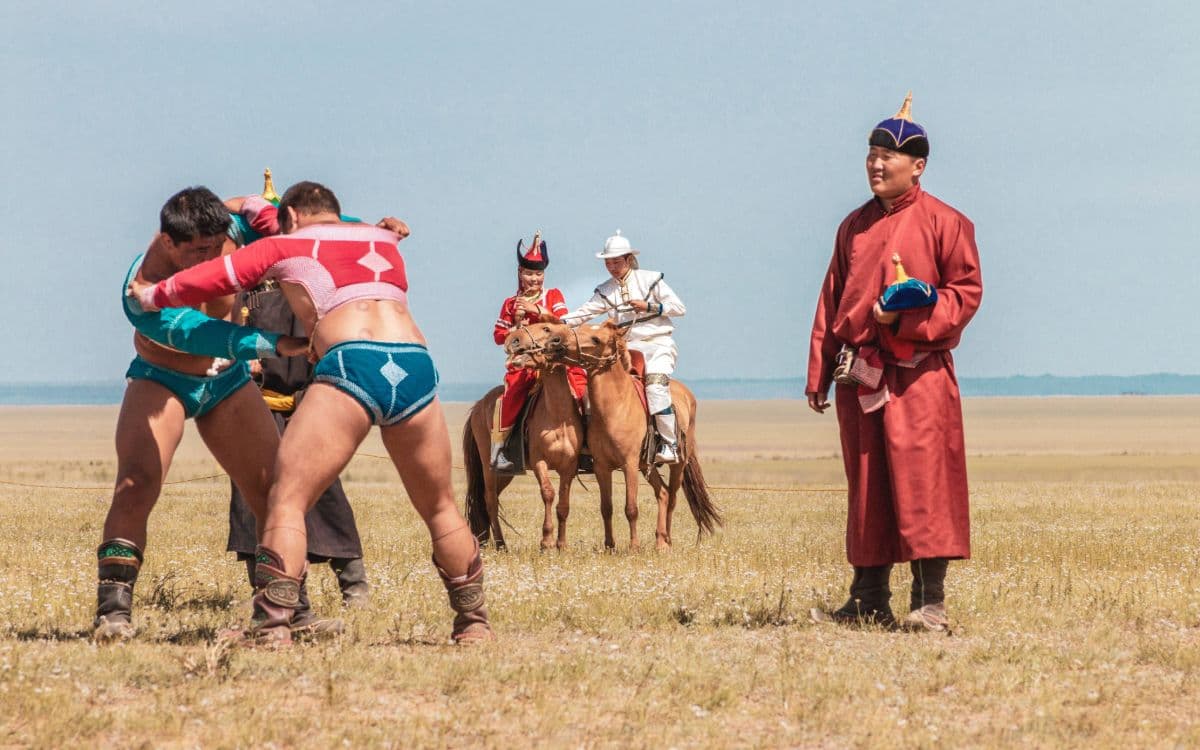Wanderlust

Aug 6, 2013
Postcards from All Over the World
Written by
Zhang Su Li

The tarmac was shimmering as I walked from the car to Clare Street that afternoon. I had spent several hours driving around, trying to find the kopitiam that I had stumbled upon several years before. Holding on excitedly to a brown paper parcel, I quickened my stride as I saw the wooden sign with gold letters on top of the entrance. It read “Poh Heng” in Chinese characters.
I went in and immediately felt comforted by the familiar aromas of butter and coffee. The kopitiam still looked the same. On the shelves of the cloudy glass cabinet were the same cakes: Swiss rolls with swirls of brown sugar kaya and green pandan kaya, kaya puffs and ring-shaped chiffon cakes in pandan, lemon and coffee flavours. Uncle Ngau, the owner, was behind the counter doing the accounts on a large calculator.
“Wah, business must be good, towkay!” I said.
“Business is the same as usual,” he laughed, “but my eyesight is getting worse.”
We chatted for a while, and then I asked if I could go upstairs, as I had something for Fourth Auntie. His gradual change of expression made me hold my breath.
“Fourth Auntie passed away last month,” he said.
I took a seat at one of the marble tables and ordered a glass of iced coffee and a Swiss roll. Uncle Ngau came to sit with me. He was just as thin as before, and his hair as black as it was when I first met him. There was a dark stain on his forehead just below the hairline, left by the hair dye. As always, he was chewing a toothpick.
“She was old. She didn’t suffer, just decided to go one night,” he told me.
*****
I first came to this Chinese coffee shop in September 2005 while on my way to the Malaysian city of Penang. The air conditioner in the car had run out of gas, and the late morning sun was becoming unbearably hot, so I decided to make a detour to Ipoh for some of its famous iced coffee.
I stopped at a row of double-storey shops with façades decorated with plasterwork depicting scenes from ancient Chinese folklore. The paint, once vibrant, had faded, bleached by the harsh sun. On some parts, one could see how many layers of paint had gone over the original paintwork, which was still visible, as the technique of applying paint onto damp plaster had been used when the shops were first built in the 1800s. On the second floor, there was an ordinary wooden plantation window, painted green, but for some reason it just looked more beautiful than the other windows.
As soon as I walked into Poh Heng, I was immediately embraced by cool air, thanks to its high ceiling and ornately carved air vents near the cornices. The breeze under the furiously spinning ceiling fans made my skin tingle as my sweat began to evaporate. At the counter, a painfully thin man with black hair and a deeply wrinkled face was clicking on a calculator and shouting at the kitchen staff that there was a customer. Through the largest hole in his white Pagoda brand T-shirt, I could see ribs under leathery brown skin. It looked like the torso of a well-preserved Egyptian mummy. At another table, two old men were playing checkers and sipping thick black coffee from saucers.
I placed my order, and sat down to enjoy the coolness of the kopitiam. A young boy of perhaps fifteen or sixteen brought out a steaming tray stacked with freshly baked bread. Using a long serrated knife, he shaved off the crusts with quick flicks of his wrist and swept them off the table into a large biscuit tin on the floor. After slicing a whole loaf like this, the boy brought me two slabs of bread as thick as 400-page novels on a plate, a small dish containing two hearty blocks of butter and a small bowl of kaya, a rich coconut jam. His pale arms had big bluish veins, and brown scars from countless oven burns covered his hands.
The aroma of rich yellow butter melting on toasted bread is something that is almost sacred. It takes me to a place that transcends the physical world. Wherever that place was, I have no complaints about it. I took my time, and finished every crumb on the plate and every drop of coffee in the glass. When I went to the counter to pay, I asked the black-haired man if I could use the toilet.
“The flush is not working,” he said to me apologetically.
“But you can use the one upstairs, if you don’t mind. It’s in my mother’s room.”
Thanking him, I walked towards the staircase next to the courtyard.
“Turn left at the top and go through the room facing the street. The toilet is there,” I heard him call from behind me.
I took my slippers off and went up the dark stairs. The timber felt cool and smooth under my feet. It must have come into contact with many, many feet over the last hundred and fifty years to get this shine, like seasoned leather. Occasionally, a loose floorboard would creak under my feet. When I reached the top, I turned left and saw a shaft of light from the air well that cut through the darkness of the hallway, illuminating tiny particles of dust in the air. A breeze stirred the particles a little. Straight ahead was the room that the man instructed me to go to.
There was an old lady sitting up in a single bed by the window. A portable radio tuned to the Rediffusion station was softly delivering the news in Mandarin. The old lady looked up from the line of cards she was laying down before her. I excused myself and asked if she minded if I used the bathroom.
When I came out, I asked her what she was playing. She explained to me that it was a very simple game.
“It’s the only card game you can play by yourself,” she said in Cantonese. “When three cards from the front and back add up to ten, twenty or thirty, you pick them up. But more than one person can play it. You try to spot the cards and pick them up faster than your opponent, and at the end of the game you total up your points.”
Then she asked me if I wanted to play with her. I sat on the old wooden chair next to her bed as she swept the line of cards into a pile. They were old and worn, and they had pictures of Prince Charles and Princess Diana on them. He was in a naval uniform and she was in a wedding dress. The old lady shuffled the cards clumsily. Her fingers were thin and knobby and crooked with arthritis. Two gold rings moved loosely between her knuckles and joints. On her left hand she wore a green jade bangle. The skin on her arms was tanned and wrinkled but her face had a radiant glow. She smelled faintly of lavender.
“Where did you get these cards from?” I asked, as she laid out the first few cards in a line.
“A friend went to England many years ago, and bought them for me.
“You must really like them, to have kept them for so long.”
“I like the pictures on them—the queen’s son and his wife. I like England even though I’ve never been there.”
She asked me if I have been to England. And when I told her that I have, a string of questions streamed from her about the British Royal Family, what food they ate, if they went shopping like normal people, and what the exchange rate was now. I told her that it was probably six ringgit to the pound. She said that was the rate a few months ago, and it was likely to be higher now.
“England’s very expensive,” she said. “One bar of chocolate costs two pounds. That would be about fourteen ringgit.”
“That’s not expensive,” I replied. “The quality of chocolate in England is much better than in Malaysia. Local chocolate is not nice because it’s made to withstand the heat here. That’s why it tastes a bit waxy and doesn’t melt easily.”
She suddenly started chuckling, revealing a perfect row of white teeth, albeit loosely fitted.
“What’s so funny?” I asked, smiling myself.
She began to tell me a story about chocolate set in Japanese-occupied Malaya during World War II. Her husband was a Chinese doctor who volunteered his services to the British Army. Although I didn’t know much about the war, I once read something about Force 136, a British-led underground resistance group of Malayan secret agents. They worked as informers for the British and performed occasional acts of sabotage and espionage against the Japanese. The locals in general were not politically savvy, so they possessed views that were based more on hearsay and rumours than on facts or well-informed predictions. Some were indifferent, a few backed the British, but most were afraid of the return of British rule, so they supported the Japanese.
Fourth Auntie—called so because her husband was the fourth child in the family—told me that every evening her husband would take their youngest daughter, then four years old, for a walk to the fringes of the jungle. He’d then leave her with her friends before going into the jungle to attend to sick and injured secret agents at a hidden makeshift clinic. Late at night, when the Japanese had stopped patrolling the streets, and most people had gone to sleep, Fourth Auntie helped out by preparing medications for the next day, grinding herbs and boiling them to make medicine balls. She had to make them by the light of a small candle to avoid detection.
“Wasn’t it dangerous?” I asked. “Your whole family would’ve been beheaded if the Japanese had got to know about it.”
Fourth Auntie replied that it would have been more dangerous if the Japanese had won the war and, at any rate, it wasn’t only the Japanese they had to be careful about. Most of the local people were against the British and if these traitors had found her out, they would have tipped off the Japanese for a few dollars.
“And I assume you got only chocolate from the British for doing such dangerous work?” I laughed.
“And schools, and hospitals, and factories,” Fourth Auntie added. She pulled out a white handkerchief from the pocket of her pyjama top and wiped her eyes. They were cloudy with cataracts.
“So, what happened with the chocolate?” I asked eagerly.
She told me that they used to get English chocolate and biscuits from the British soldiers, and that one day she gave their neighbours, the Wongs, a bar of chocolate because they had never tasted it before. Mrs. Wong’s family was so thrilled about it that they kept it in a drawer, not wanting to eat something so precious. The Chinese immigrants came from extremely poor villages, Fourth Auntie explained. She said that I could never imagine, nor would I ever understand, the kind of poverty that drove parents to exchange their daughters for enough food to feed the family for only another few days. Every year, when the farmers harvested their crops, they had sufficient food to last them through the year and even had extra to sell, but most of it was confiscated by the government. Some families began hiding their grains and cereals, and when the government officials found out, they were severely punished and left with nothing at all. The Chinese immigrants had originally come to Malaya not only with empty pockets but also the heavy baggage of hardship and suffering. So when they had a good thing going, they didn’t know what to do. When the neighbours, who were immigrants from a small village in China, got hold of something as luxurious and special as a bar of chocolate, they saved it by placing it in a drawer, like dogs burying food for safe keeping.
“One day,” Fourth Auntie said, wiping her eyes again, “Mrs. Wong appeared very distressed. She told us that when they eventually decided to eat the chocolate, and this was almost a year later, they saw that it had gone mouldy.”
Fourth Auntie paused for a while to count her points after our second game. Then she continued her story.
“Instead of wiping the mould off, they put it out in the sun to dry, like we used to dry vegetables in China during the winter.”
Fourth Aunty paused for a while. We looked at each other, and both started laughing.
“By the time they went out to check on it, the whole bar had melted into a messy puddle on the pavement.”
She sighed and shook her head, saying that she didn’t know whether to laugh or cry. I told her that the sad thing was that the whitish appearance on the chocolate probably wasn’t mould at all. It was just cocoa butter rising to the surface, which was perfectly safe to eat.
“Ha, really? So stupid we were,” Fourth Auntie said, laughing.
I laughed along with her as I gathered all the cards up and shuffled them, preparing for the next game.
“But the chocolate was just a small tragedy,” Fourth Auntie said. “Not long after that, their baby died and they never spoke to us again.”
Apparently Mrs. Wong brought her baby to them because he had been burning with a high fever for days. The baby was tightly bundled in several blankets and had a woolly hat on. His face, which could barely be seen, was like a lump of glowing coal. Fourth Uncle immediately unwrapped him and cooled him down with a wet towel. Mrs. Wong was shocked at first, and then angry. She grabbed the baby from him and left in a hurry, and the baby disappeared back into the cocoon of blankets. A few days later, the baby died. Fourth Auntie said that in China illnesses were often due to the cold. In a hot country, illnesses are usually caused by the heat. But it was difficult to explain this to them, as nothing could be proven. It just seemed logical that being in a different environment required different ways of doing things.
“We cannot read just one book and expect to use that knowledge for an entire lifetime,” Fourth Auntie, who was illiterate, stressed.
The line of cards had become a wavy snake between us. We must have missed several opportunities while talking. I asked her about life in China and she asked me about all the countries I had travelled to. While she spoke of the long village roads in spring where she used to ride a bicycle alongside the cherry blossoms bursting like pink fireworks on one side of the road, and weeping willows dripping from the sky to the ground on the other side, I told her about the lavender fields in France and how the air in Morocco was always laden with the scent of spices and fruit-flavoured tobacco. I listened with admiration about how Fourth Auntie, as a nine-year-old maid to a wealthy family, often hid behind a screen and peeped through the holes of the wood carving during the children’s lessons in order to learn to read and write. But she didn’t get very far as her employers found out about it and sacked her for neglecting her chores. She listened with amazement about how exhilarating it was to gallop on a horse in the Yorkshire Dales, and about a place on earth where the sun doesn’t set completely for six months of the year.
She described to me how, as children, they made bamboo traps to catch frogs and little birds in the paddy fields for their dinner. And on rare occasions when they were really lucky, they managed to catch a wild chicken. To cook it, their mother covered the chicken in a thick layer of mud and placed it in a pit in the ground with hot coals. When they took it out a few hours later, they smashed the mud casing open and inhaled the delicious aroma of freshly baked chicken with smooth white flesh that just fell off the bone. They ate it with salt, as that was often the only seasoning they had. I told her about a restaurant in Spain where they served pan-fried watermelon and smoked salmon ice cream, and that it was actually delicious. She wouldn’t have known what smoked salmon was, so I said “fish ice cream”. I imagined her retelling it to other people and how they’d think she was completely nuts.
The soft, recorded prayer from a nearby mosque floated in through the window. I looked at my watch. It was almost half past four. I told Fourth Auntie that I was on my way to Penang and that I should get going. I gathered all the cards and stacked them into a neat pile. She turned and looked through the window to the street below and informed me that the night market would be open soon and that I should try the noodles. They are still made of pure rice ground into a paste by hand, and the fish balls are the best in the country. Unlike the bouncy white ones in Kuala Lumpur, these fish balls are firm, made of real fish and have bits of dried tangerine peel that give them a lovely flavour. A bowl of noodles with yong tau foo costs less than three ringgit. I was tempted to stay for dinner, but decided not to, as I didn’t want to reach Penang at too late an hour.
“I really should get going,” I said half-heartedly. “Maybe next time.”
She placed her hand on my arm and told me to drive carefully. As I walked out of the room, she said to me, “Would you mind if I ask you a favour?”
“No, of course not,” I replied.
“Whenever you travel, if you have time, please send me a postcard.”
I promised her I would.
*****
In the years that followed, I found myself buying postcards from every city, town and village I passed through. I had ones depicting the exterior of the Salvador Dalí museum with bread rolls on its walls and giant eggs balancing on the roof, the expansive skies of North Dakota, the Magdeburg Water Bridge, the Ice hotel in Sweden and the Sulabh International Toilet Museum. I knew Fourth Auntie would really appreciate these unusual and quirky ones, especially the postcard of Charles and Diana with Turkish writing on it, that I found in a bazaar in Turkey.
I never got round to posting any of them, partly because I kept procrastinating and partly because I simply couldn’t be bothered. The weeks turned to months, and then years.
When Uncle Ngau told me that his mother had passed away, I looked down at the parcel containing the postcards and wondered what to do with it. As I walked out of the kopitiam, I turned my head towards the window and imagined Fourth Auntie looking out through it at the street below. The deck of cards with pictures of Charles and Diana would be lying beside her, along with postcards from all over the world scattered across her bed.
While driving out of Ipoh, I noticed that most of the old shops had been renovated to the extent that very little of the original structures remained. The electric blue walls had been replaced by new white walls with tinted sliding windows. There were very few shop houses that still had round windows with wooden bars running from top to bottom. And the plasterwork that told stories of Chinese folklore had crumbled so much that it was just a matter of time before it was torn down.
As I drove towards the highway to Kuala Lumpur, I turned into a petrol station to buy some cigarettes. The urge suddenly came back to me even though I had given them up several years before. It was a pleasantly cool evening, so I wound down the windows and smoked in the car. The sun, which was quivering behind a mountain straight ahead, sank little by little until it disappeared, and the orange sky gradually turned a pinkish purple.
When the mountains darkened into silhouettes, I looked for the next sign to a rest stop. I got out of the car with the brown parcel in my hand and dumped it into a dustbin by the picnic tables. Then I returned to the car to continue my journey. The radio played songs from the 1980s by Kajagoogoo, Alison Moyet, Haircut 100, Spandau Ballet, Depeche Mode,
Howard Jones, Duran Duran, Kool and the Gang, Yazoo, Madness, Adam Ant, Blondie, a-ha, Buck’s Fizz, Human League, T’Pau and REO Speedwagon. I hated Eighties music, yet I found myself listening to every single word and instrument.
One by one the street lamps whizzed past me rhythmically as I travelled at a steady 120 kilometres an hour. There was one cigarette left in the pack. I lit it and inhaled deeply. And then, I raised my eyebrows to open my eyes as wide as I could. I reckoned if I could stop the first tear from falling, I’d be okay.
*****
Zhang Su Li describes herself as “a traveller with not much sense of direction.” However, her first book, A Backpack and a Bit of Luck*, published in 2007 by Marshall Cavendish, managed to find its way to the Top Ten travel section in Borders Kuala Lumpur, and was shortlisted for Travel Narrative of the Month in Borders Singapore. She has three short travel stories in the anthology, Sini Sana, published in 2011 by MPH Publishing. Su Li was born in Ipoh, Malaysia, educated in the UK, and currently lives in Kuala Lumpur. Visit her website at www.zhangsuli.com.*






